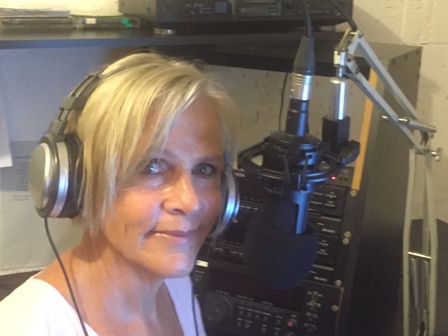
Behind the Headlines
 Don’t you hate it when politicians make huge changes to your life and all you get is a sound bite?
Don’t you hate it when politicians make huge changes to your life and all you get is a sound bite?
In our 24-7 news cycle world, we experience a constant barrage of media, advertising, and changing agendas, and it can be difficult to get to the heart of important social and political issues and what they mean for you and your community. Behind The Headlines is a new current affairs prorgam that aims to bring listeners the whole, complex truth - the facts minus the spin.
This is especially relevant in this Federal Election year, a time when often the most affected groups are given the least voice. Behind The Headlines, which has begun on Radio Skid Row and is airing through the Community Radio Network, goes to people in the know; community workers, academics, practitioners and community members - giving them a voice and contributing to the diversity of views shared in Australian media on these issues.
We caught up with host Julie Macken to discuss the program:
So far you've had a rather formidable career as a senior feature writer at The Australian Financial Review, having worked for Greenpeace, the Greens and the superannuation sector. Is Behind the Headlines a return or a beginning in radio for yourself?
Behind the Headlines is a bit of a homecoming to journalism for me, but it is a new adventure in radio journalism. Like most reporters, I have always loved radio. I think when it comes to news, current affairs and story-telling, radio is king. I have feel really privileged to be able to make a contribution on radio.
What oversight in the current Australian media landscape is the program addressing?
We decided to call it Behind the Headlines because that’s really what we are trying to do – get behind the headlines. Most days the headlines are created by politicians, and only the politicians and policy wonks get asked about it. The voices of the real experts – those who have spent their lives working in a particular field, and those impacted by these decisions are rarely heard. So we are committed to pursing the voices of the community sector, the experts in each area and those who are being asked to live with the consequences of those headlines.
Throughout your career you've seen how facts can be clouded by spin in the news cycle. How do you feel this can affect people with little power in our communities?
Someone once said the history is written by the winners. I would add that the news is created by the powerful – usually. If we only ever hear the voices and opinions of the powerful, the rich, the entitled and the connected, we get the feeling that the rest of us are pretty irrelevant. When we don’t hear our stories, we start believing they don’t matter, our lives don’t matter, and our community is not important. That is just terrible for all of us.
The program seeks to cut through the scripted soundbites many media outlets offer us as news coverage. How do you find this usually shapes debate in Australia?
Sound bites make complex issues sound simple and they are rarely that. This misrepresents the truth on the most basic level. Sound bites reduce ideas, people and issues to simple, “she said, he said” which misses the complexity, the tensions, the subtly. Then we start expecting simple solutions to very complicated problems. We also begin to think that really difficult and long-standing tensions are easily and quickly dealt with. This makes us unrealistic in our demands of others.
If we use a recent episode around housing affordability as an example, could you talk us through what you feel are the usually neglected issues in this debate? How did you restore some balance in the episode?
What I loved about this episode is having Ben Spies-Butcher talk about the really big picture, that is, how Sydney began to see manufacturing jobs empty out and high paying finance jobs replace them, which in turn led to a lot of people having a lot of money in very concentrated postcodes. Suddenly I began to see a pattern emerge. Then when others spoke about how negative gearing and capital gains tax function together, I understood how we got the preconditions necessary for this crisis. But it was talking to Mary Perkins that I was able to see how we stopped talking about homes and started talking about housing assets and that change of language transformed really fundamental values about the human right to housing.
What topics do you seek to tackle in the future?
We really try and respond to the headlines and national debates but I think we will be re-visiting issues like the destruction of TAFE, how climate change is changing the way we fight fires, childcare, nursing, health and of course, with an election looming, politics will probably get a look in as well.
And how do you find producing the program from Radio Skid Row each week?
I really love it. I must say it is incredibly challenging finding the right subject, becoming an instant expert – or at least knowing enough about the subject to ask the right questions, and then finding those who can tell their story in a way that illuminates the issues for all of us. Then Joel (Pringle, Series Producer) cuts it together and turns it into something I am so excited about – I really love this program.
For CRN subscribers:
- Behind the Headlines (27'50) is broadcast/distributed by CRN Fridays from 13:32 to 13:59:50 EST/EDT, and is available for DDN capture
- For more information contact CRN staff on 02 9310 2999 or email [email protected]
Not a CRN subscriber, but want to find out more about getting content like this for your station? Read more here.
Facebook comments